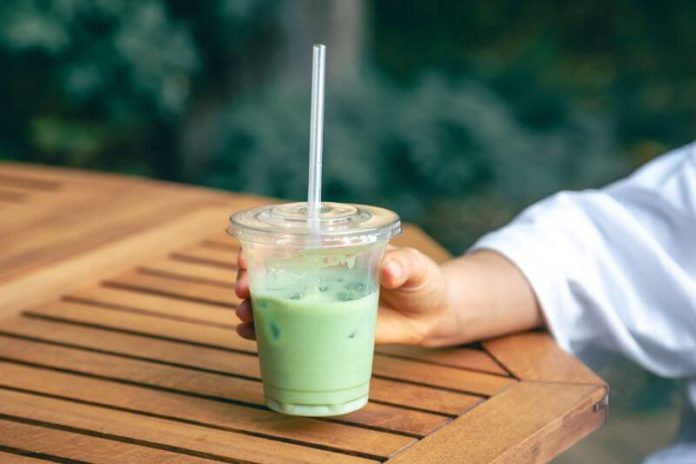Matcha lovers, beware! There’s a bit of a green dust cloud on the horizon. A recent shortage of matcha has been plaguing cafes and even some grocery stores, leaving matcha lattes and homemade treats temporarily off the menu. This isn’t just a case of picky eaters – the reasons behind the shortage are a complex blend of factors, from increased global demand to supply chain disruptions.
History Of Matcha
Matcha’s history is a fascinating journey that starts in China during the Tang Dynasty (7th-10th centuries). Back then, tea leaves were steamed and compressed into bricks for easier transport and trade. While these bricks were made with roasted and powdered leaves, they were often mixed with water and salt for consumption. The Song Dynasty (10th-13th centuries) is credited with popularizing this powdered tea preparation.
However, the true turning point for matcha came in 1191, when Zen Buddhist monk Eisai brought tea seeds and knowledge of matcha from China to Japan. Eisai recognized matcha’s potential to enhance meditation by promoting a state of calm alertness, thanks to the interplay of caffeine and L-theanine in the tea. As matcha’s benefits gained recognition, it became a cornerstone of the sophisticated Japanese Tea Ceremony, also known as “chado,” which continues to be a cultural treasure today.
While matcha production was eventually abandoned in China, Japan embraced it wholeheartedly, refining the methods to grow shade-grown tea plants and develop the vibrant green color characteristic of modern matcha. This rich history makes matcha more than just a delicious beverage; it’s a cultural experience steeped in tradition.
Is There A Matcha Shortage?
Yes, there is currently a matcha shortage, which has led to the limited availability of matcha drinks on their menu. The deficiency has been causing disappointment among clients who have come to depend on their day to day match fix.

Why Is There A Matcha Shortage?
The matcha lack can be credited to various variables:
Global Pandemic
One of the main reasons is the disruption in the supply chain caused by the global pandemic. The creation and dispersion of matcha powder have been impacted, prompting a diminishing in its accessibility. Another factor is the increasing demand for matcha worldwide, which has contributed to the scarcity of this popular tea ingredient.
Weather Conditions
In addition, the weather conditions in Japan, where most of the world’s matcha is grown, have also been unfavorable in recent years. This has prompted a decline in the yield of matcha, further compounding the deficiency.
Related Article:
Try Other Options
There are many alternatives to matcha, depending on what you’re looking for. Here are a few options:
- Green tea:If you’re looking for a similar caffeine content and health benefits, green tea is a great option. It has a similar grassy flavor, but not as intense as matcha. You can find loose leaf green tea or in bags.
- Hojicha:This roasted green tea has a lower caffeine content than matcha and a nutty, toasty flavor. It’s a good option if you’re looking for a more relaxing tea. Hojicha comes in a powdered form similar to matcha.
- Ube Latte: If you’re looking for something with a more unique flavor profile but still with a vibrant green color, ube (purple yam) lattes are gaining popularity.
Impact of Matcha Shortage On Customers
The matcha lack essentially affects clients.Many regular Starbucks goers who relied on matcha as their preferred beverage have had to find alternative options. Some have expressed disappointment and frustration over the limited availability of matcha drinks, while others have turned to making their own matcha latte at home.
Due to the shortage Starbucks has been forced to limit the availability of matcha drinks at some stores and has even discontinued some matcha-based products altogether.
The shortage has been particularly frustrating for customers who rely on matcha as a daily pick-me-up or as a part of their daily routine. Some people have taken to social media to vent their frustration, while others have simply given up on Starbucks altogether.
Why Do People Love Matcha So Much?
Matcha’s popularity stems from a delightful combination of taste, health benefits, and cultural experience. Matcha drinkers appreciate its unique flavor profile. While it has a base of earthiness like green tea, high-quality matcha can have a pleasant umami savoriness and a subtle sweetness. The whisking process creates a frothy beverage with a smooth, almost creamy texture, even without adding milk. Beyond taste, matcha is revered for its health benefits.
It contains a significant amount of antioxidants, even more than regular green tea, due to ingesting the whole ground leaf. This antioxidant punch is linked to potential benefits like boosting the immune system and aiding in weight management. Matcha also offers a unique energy boost. While it has caffeine, the presence of the amino acid L-theanine creates a calmer, more focused alertness compared to the jittery feeling some get from coffee. This is often described as a relaxed focus, ideal for meditation or tackling tasks.
Finally, the ceremonial aspects of preparing matcha add to its allure. The whisking ritual can be a calming, mindful practice, and the vibrant green powder adds a beautiful touch to lattes or baked goods. So, whether it’s the taste, the health benefits, the focus-enhancing properties, or the beautiful ritual, matcha offers a multifaceted experience that has captured the hearts (and taste buds) of many.
Conclusion
The matcha shortage has disrupted the usual flow of this popular green tea powder, but there are ways to adapt. Green tea lattes and ube latest offer alternative flavor profiles, while black tea and goji berry tea provide similar antioxidants. Coffee remains a classic choice for a caffeine boost. With some exploration, you can find a suitable substitute or wait for matcha to return to store shelves.
FAQs – Matcha Shortage
Is There a Matcha Shortage?
There is a shortage of matcha. However, some cafes and stores might experience temporary limited availability due to various factors.
Is This Shortage Temporary?
It’s difficult to say for sure without specific information on the cause of the limited availability. However, fluctuations in supply are common in the matcha market.
What Does Matcha Taste Like?
High-quality matcha should have a rich umami taste, with a touch of sweetness and a subtle grassy aroma. Low-quality matcha can taste bitter.
Does Matcha Have Caffeine?
Yes, matcha does contain caffeine, but less than coffee (around 34mg per serving compared to 90-200mg in coffee). The caffeine in matcha is released slower, providing a sustained energy boost with fewer jitters.

